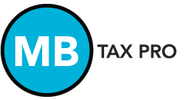|
What is a Form 1099-NEC?
Form 1099-NEC is essentially an information report that is required to be sent to certain recipients who have been paid during the year in the course of a trade or business. A copy of the Form 1099-NEC is also reported to the Internal Revenue Service (and some states) for their records as well. Failure to file a required 1099-NEC may result in denied expense deductions upon audit and additional penalties and fees (typically $30 to $100 per missed filing for federal purposes). Form 1099-NEC Filing Requirements Form 1099-NEC must be filed when Non-employee Compensation of $600 or more is paid during the year to a non-employee. Includes payment for professional services (fees to attorneys, accountants, engineers, repairman, etc.). 1099-NEC Filing Exemptions There are a few cases when Form 1099-MISC does not need to be filed even though it may have met the aforementioned requirements. A few examples are as follows:
Tax Reporting of 1099-NEC There is now a question on tax returns which specifically ask if a business was required to issue 1099s and if so, whether they were filed. Therefore, the IRS has implemented extra measures to make sure the 1099-NECs are filed and will likely begin strictly enforcing the rules. It is advised to collect a Form W-9 from all vendors so that 1099-NECs can be issued if needed. Form 1099-NEC Due Date Form 1099-NEC is due each year to the recipient and IRS by January 31st. The new accelerated deadline will help the IRS improve its efforts to spot errors on returns filed by taxpayers. For more information on form 1099-NEC and 1099-Misc visit the IRS website.
1 Comment
Things to know right off the bat:
Tax deductions help lower how much of your income is subject to federal income taxes. While tax credits lower your actual tax bill dollar for dollar. These credits can be refundable or nonrefundable.
Retirement Plans - 401(k)s, IRAs and more:
|
Our Mission“At MB we are tax professionals and business consultants. We are in partnership with you, year round, to lower your tax liability to the fullest extent of the law, maximize profits, inspire growth and provide peace of mind.” Archives
November 2023
|
Call 503-595-5890
